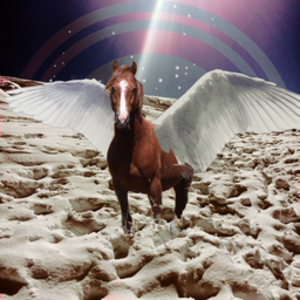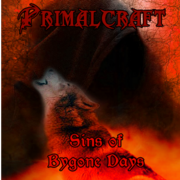Being only a dog, Nana had to endure all sorts of social injustices from the other nurses, who affected to ignore her as inferior to themselves. In turn, she despised their light talk of pictures and beaus, and sneaking out after the children were abed. Nana can be reasonably assumed to dislike any sort of frivolity at all, unless it came from the children. She especially resented visits to the nursery from Mrs. Darling and her friends, between cafe lunches and evenings out at the pictures, but if they did come she first whipped off Michael’s messy play clothes for some a little smarter, smoothed out Wendy (she was perpetually rumpled) and made a dash at John’s hair.
No nursery could possibly have been conducted more correctly, and Mr. Darling knew it, yet he sometimes wondered uneasily whether the neighbours talked, behind their imposing closed doors.
He had his position in the city to consider, and that in his firm. One day, he planned to be a card-carrying, respectable senior partner, with his own car and chauffeur. This would never happen if rumours leaked out about his unconventional living arrangements. A dog as nanny! He could only imagine what might be said, and it very often gave him a headache.
Nana also troubled him in another way. He had sometimes a feeling that she did not admire him (this was true). “I know in my heart that she admires you tremendously, George,” Mrs. Darling would assure him, and then she would signal subtly to the children to be especially nice to their father. Nana would retire at these times, stiff and dignified, to her little castle kennel.
Lovely dances followed, in which the only other servant, Liza, was sometimes allowed to join, if she had completed her myriad of duties. Such a midget she looked in her long skirt and maid’s cap, though she had sworn, when engaged, that she would never see fifteen again (in fact she was twelve, little older than Wendy herself, of an impoverished family. Mr. Darling had hired her because he was certain she would be too timid to ever ask for an increase in her wage). The gaiety of those romps! And most dashing of all was Mrs. Darling, who would pirouette so wildly to the music of the wireless that all you could see of her was the kiss, and then if you dashed at her you might have got it. Wendy attempted to despise these falsely jolly occasions, for she could smell out her father’s insecurity as a rat smells ripe cheese, but the laughter would eventually bubble out of her, and she would join in as wildly as her mother in the dancing.
She always dreaded the moment that the play would end, for then the adults would forget them again, and go away about their own affairs, leaving them with the dog. On the whole though, they all muddled along well enough, until the coming of Peter Pan, a little after Wendy’s birthday, and well before Michael’s.
Mrs. Darling first heard of Peter when she was tidying up her children’s minds. It was her custom, when she was not out dancing with Mr. Darling, or being seen, gaily decorated, promenading with friends, to rummage in the childrens’ minds and belongings and put things straight for next morning, repacking into their proper places the many articles that had wandered during the day. If you could keep awake (but of course you can’t) you might see your own mother doing this, and you would find it very interesting to watch her. It is less like tidying up drawers, and even more like breaking into someone’s diary. You would see her on her knees, I expect, lingering humorously over some of the contents of your open mind, making discoveries sweet and less so. When you wake in the morning, the naughtinesses with which you went to bed have been folded up small and placed at the bottom of your brain and on the top, beautifully aired, are spread out your prettier thoughts, ready to be put on until you begin to choose them yourself, out of habit.
Now Wendy knew about this practice, though how she came by the knowledge we cannot say. Perhaps her toy monkey whispered it to her, for monkeys are devious, and those with button eyes more so than most. So she schooled herself in making and creating a secret mind, where she could hide all her deep thoughts in a puzzle-box that only she could open, and view the world with wide hazel eyes of liquid innocence.
She would have been surprised to learn that Mrs. Darling also had a secret box in her mind; accurately, she would point out to us that it had been so little utilized since girlhood that even Mrs. Darling had forgotten about it. For Mrs. Darling had stopped having secret thoughts, and had instead become only what she appeared to be, the poor, pretty thing.
So, when she was not out doing adult things, Mrs. Darling rummaged and poked through her children’s minds, which each resembled maps of little islands, overlaid with coral reefs and sturdy canoes, and elves who can be friendly or very cruel, and caves through which a river runs, and one tiny old lady with a hooked nose, who is just like the grandmother you never had. Sometimes secrets would be buried under the coral reefs, and guarded by mermaids, or disguised as trees in the landscape, just to show that children are not entirely defenceless. Even a poking, prying adult would not uncover all their child’s secrets, though they might guess at some of them.
It would be an easy map if that were all, but there is also your first day at school, fathers, the round pond where you tossed a rock, pinkie-swears, murders, rhymes, times tables, chocolates, say ninety-nine, three-pence for pulling out your tooth yourself, and so on, and either these are part of the island or they are another map showing through, and it is all rather confusing, especially as nothing ever stands still. Mountains one day are volcanic calderas the next.
Of course the children’s Neverlands varied a good deal. John’s, for instance, had a lagoon with flamingos flying over it at which John was shooting with a gun that fired marshmallows, while Michael, who was very small, had a flamingo with lagoons flying over it. John lived in a boat turned upside down on the sands, Michael in a hide yurt, Wendy in a house of leaves alone in the high mountains. John had no friends at all, Michael had friends at night, Wendy had a pet wolf forsaken by its parents, but on the whole the Darlings’ Neverlands possessed a family resemblance, and if they were made to line up in a row one might see this. On these magic shores children at play are forever beaching their coracles. We too have been there; we can still hear the sound of the surf, though we shall land no more. This is not to say that there are no Neverlands for grownups; but they are separate places, with their own adventures and accompanying maps.
Of all delectable islands Neverland is the snuggest and most compact, not large and sprawly with tedious distances between one adventure and another like Middle Earth, but nicely crammed. When you play at it by day with the chairs and tablecloth, it is not in the least alarming, but in the two minutes before you go to sleep it becomes very real. That is why there are night-lights, for the Fear which slumbers during the day in deep, still pools on the island awakes in the darkness, and it can span the universe in a thought.
Occasionally in her travels through her children’s minds Mrs. Darling found things she could not understand, and of these quite the most perplexing was the word Peter. She knew of no friend of theirs called Peter, and yet he was here and there in John and Michael’s minds, while Wendy’s began to be scrawled all over with him. The name stood out in bolder letters than any of the other words, and as Mrs. Darling gazed she felt that it had an oddly cocky appearance.
“Yes, he is rather cocky,” Wendy admitted, thinking with regret of her secret mind. She was not yet so good at hiding all her thoughts away in it, and Mrs. Darling had been questioning her.
“But who is he, my pet? Please, have a mind for your stitches, you are making them all crooked.”
“He is Peter Pan, you know, Mother,” and, presently, “please, let me do it. I can do it!”
At first Mrs. Darling did not know, but after thinking back into her childhood she just remembered talk of a Peter Pan who was said to live with the fairies. There were odd stories about him, such as that when children died he went part of the way with them, so that they should not be frightened; or perhaps he was a dead boy himself? No one ever knew for certain. She had believed in him at the time, but now that she was married and full of common sense she quite doubted whether there was any such person. Presumably some unhappy child had invented him to salve a loss; or even a bereaved parent could have made him up.
“Besides,” she said to Wendy, “he would be grown up by this time.”
“Oh no, he isn’t grown up,” Wendy assured her confidently, “he is just my size.” She meant that he was her size in both mind and body; she just knew it, the same as she knew that her stomach was about half-empty, and that Liza would not allow her a biscuit if she went down to the kitchen.
Mrs. Darling consulted Mr. Darling, but he smiled pooh-pooh. “Mark my words,” he said, “it is just some nonsense Nana has been putting into their heads; just the sort of silly idea a dog would have. Leave it alone, and it will blow over soon enough. Don’t encourage them by talking more about it.”
But it would not blow over and soon the troublesome boy gave Mrs. Darling quite a shock.
Children have the strangest adventures without being troubled by them; it is a chief strength of theirs that they are not so limited by causality and a varying grasp of physics as adults are. It was due to this that Mrs. Darling one morning made a disquieting revelation. Some leaves of a tree had been found on the nursery floor, which certainly were not there when the children went to bed. Mrs. Darling was puzzling over who had put them there when Wendy said casually, smiling:
“I do believe it has been Peter again!”
“Whatever do you mean, Wendy?”
“It is so naughty of him not to wipe his feet,” Wendy said. “He should know that we will be blamed for his mess, but he is so capricious. I can’t tell him anything.”
She explained in quite a matter-of-fact way, as she pulled on her shoes, that she thought Peter sometimes came to the nursery in the night and sat on the foot of her bed and played on his pipes to her. The sound led her into strange, wonderful dreams, but she always knew that he was sitting there, looking over her shoulder into the dream and piping the song. Unfortunately she never woke, so she didn’t know how she knew, she just knew. Sometimes, if she awoke early enough, she would find the warm patch from where he had sat, or dirt where there had been none before.
“What nonsense you talk, precious. No one can get into the house without knocking.” Absently, she untied and retied Wendy’s sash, for it was untidily done.
“I think he comes in by the window,” Wendy said, wriggling away from the hand of maternal control.
“My love, it is three floors up. Let me fix your hair. You’re big enough now to do it properly yourself.”
“Ouch! Be careful Mother, you’re pulling! Were not the leaves at the foot of the window?”
It was quite true; the leaves had been found very near to the open casement.
Mrs. Darling did not know what to think, for Wendy spoke of it all so naturally that it could not be dismissed by saying she had been dreaming.
“My child,” the mother cried, “why did you not tell me of this before?”
“I forgot,” said Wendy lightly, waving the question away. She was in a hurry to get her breakfast, for it was fresh bread day.
Oh, surely she must have been dreaming. She was such an odd child.
But, on the other hand, there were the leaves. Mrs. Darling examined them very carefully; they were skeleton leaves, all decayed except for the fine tracery of veins holding them together, but she was sure they did not come from any tree that grew in England. She delayed a stroll in the park with a bosom friend, and instead crawled about the nursery floor once the children had gone to school, peering at it with a candle for marks of a strange foot. She rattled the poker up the chimney and tapped the walls. She let down a tape from the window to the pavement, and it was a sheer drop of thirty feet, without so much as a spout to climb up by.
Wendy must have been dreaming.
But Wendy had not, as the very next night showed.
On the night we speak of all the children were once more in bed. It happened to be Nana’s evening off, Mr. Darling was at his club, and Mrs. Darling had tucked the children into bed and sung to them till one by one they had let go her hand and slid away into the realms of Morpheus. She sang beautifully; some evenings it was quite a long time before the children could be convinced to sleep, for they enjoyed listening to her far too much to miss it by slumbering.
All were looking so safe and cosy that she smiled at her fears now and sat down tranquilly by the fire to read through a magazine, for even ladies as socially active as she desired a quiet night at home on occasion.
The fire was warm, however, and the nursery dimly lit by night-lights, and presently the paper lay on Mrs. Darling’s lap. Then her head nodded, and she was also asleep, one of four peacefully slumbering in the warm nursery.
While she slept she had a dream. She dreamt that the Neverland had come too near to the adult, everyday world, and that a strange boy had broken through from it, coming down from a sort of highroad near the stars. In her dream he had rent the film that obscures the Neverland, and she saw Wendy and John and Michael peeping through the gap. Wendy, she noticed, was leaning most of the way through it, in the most unbecoming fashion.
I must tell her not to do that, she thought to herself, it is a quite unladylike thing to do.
This would have been nothing more than an odd dream, but that whilst it occurred, the window of the nursery opened, and a little boy dropped lightly to the floor, accompanied by a tiny, glowing, yellow light. The orb darted about the living room like a living creature, and it was the chaos of shadows it cast which woke Mrs. Darling from her nap.
She started up with an arrested cry of surprise, and saw the boy. Somehow she knew at once that he was Peter Pan, whom she had told stories about as a little girl herself. If anyone else had been there, they would have observed that he was very like Mrs. Darling’s unattainable kiss. He was a lovely boy, clad in skeleton leaves all glued together with tree sap, and was so little that he still had all his first teeth. When he saw a grown-up, he bared those teeth and snarled.











Comments (0)
See all